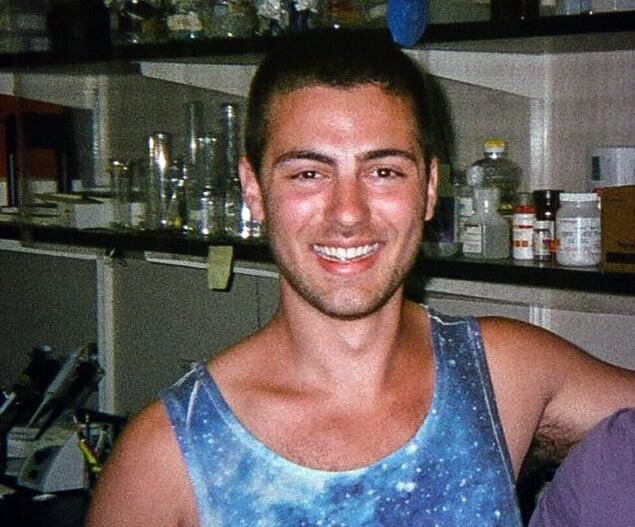Perspectives of a MiNDS PhD Candidate on Graduate School and COVID-19
Author: April Fievoli

Recently, Shane Simon, a PhD candidate working under the supervision of Dr. Deda Gillespie was interviewed to get his perspectives on the Neuroscience Graduate Program before and after the onset of COVID-19. In addition, Shane shares his experiences and valuable advice for students who are early on in their graduate studies here at McMaster, see below!
Could you give a brief overview of your research?
To put it simply, I study how the nervous system develops. More specifically, I am interested in how mammalian inhibitory projection neurons develop in early postnatal life. Inhibition is critical for circuit-level computations and has a strong influence on whether or not a cell will fire an action potential. But we know little about how these powerful inhibitory projections develop in postnatal life. For the first part of my project, I study how some peculiar proteins at inhibitory projection neurons develop by using immunohistochemistry. For the second part of my project, I use a variant of Brainbow to sparsely label these projection neurons so I can track how their axon arbors change over development.
What was the MiNDs program like before the onset of COVID-19? How are things different now than they were before?
Programs across campus have been hit hard by COVID-19. Our program may have been hit even harder because of our about half of our students do their work on the main campus, while the other half is at the St. Joseph’s Healthcare Hamilton - West 5th campus. Before COVID-19, we had in-person classes, in-person talks, in-person social events that gave us the opportunity to foster more robust personal and professional relationships. Online just isn't the same. I miss the coffee and cookies at colloquia, pizza at journal club, and being able to catch up with classmates and colleagues. We had lots of opportunities to get to know visiting speakers before the pandemic; students had opportunities to meet with speakers over lunch before the talk and at the Pheonix pub after the talk.
What are some coping and adaption skills you learned to deal with the challenges you might have faced?
I don't know how many coping skills I have, but I found sticking to the basics is even more important in the middle of a pandemic. Eating well, getting regular exercise, and taking time for myself are all important personal things for me. Keeping organized with schedules and to-do lists and planning experiments well in advance are both critical. But by far the most important thing I've learned in grad school is the ability to be flexible. Whether it be trying out a new protocol or a last-minute, unexpected presentation, my flexibility has gotten me through it. Roll with the punches!
What are some opportunities currently available to students in the MiNDS program? What are some extracurriculars that you are a part of at McMaster?
I always make recommendations about extracurricular activities with caution because it's easy to get involved with too much and that can take away from your research, but there are so many opportunities in MiNDS. From helping out with colloquia or leading social events to mentoring new students, MiNDS has a bunch. I used to help out with taking the visiting speaker out to lunch with a handful of graduate students. I am the program ambassador for MiNDS and I represent students of our program on the advisory board. Outside of the program, I play for the PNB softball team!
What are some of your achievements (personal or academic) that you have accomplished over the past two years?
Hah! Well, I've found a way to stay happy and healthy during this pandemic, so that's for sure my biggest achievement. But I stepped out of my comfort zone and gave my first guest lecture on cerebellar circuitry. I've continued to mentor several students in my lab. And despite a bunch of COVID-related setbacks, both of my projects are headed in the right direction. And not to flex, but on this 40km stretch on the Hamilton rail-trail for cycling, I got 7th all-time on Strava for time.
What is some advice you would give to students who are early on in their graduate studies?
I could write a book on this. Maybe when I get more free time, I can give a better answer. I'd say learn how to harness your focus. That's a really vague thing to say, but it'll help you at the lab bench and in your reading/writing. I found when I first started grad school, just like many of you, I knew how to focus at times, but I couldn't flip a switch to turn it on. After some practice, I've mastered the control of my focus. Another quick tip I have is to read broadly and read narrowly. You'd be surprised how many good ideas are out there that could help your project. Make sure you're staying on top of your field, but also make time to potentially bring some new things to it. Another important thing is to be able to describe your project at different levels. For instance, how would you describe your project to an interested high-schooler vs. a scientist in your field?
Thank you Shane for your great tips!
Follow Shane on Twitter @sharkweekshane!